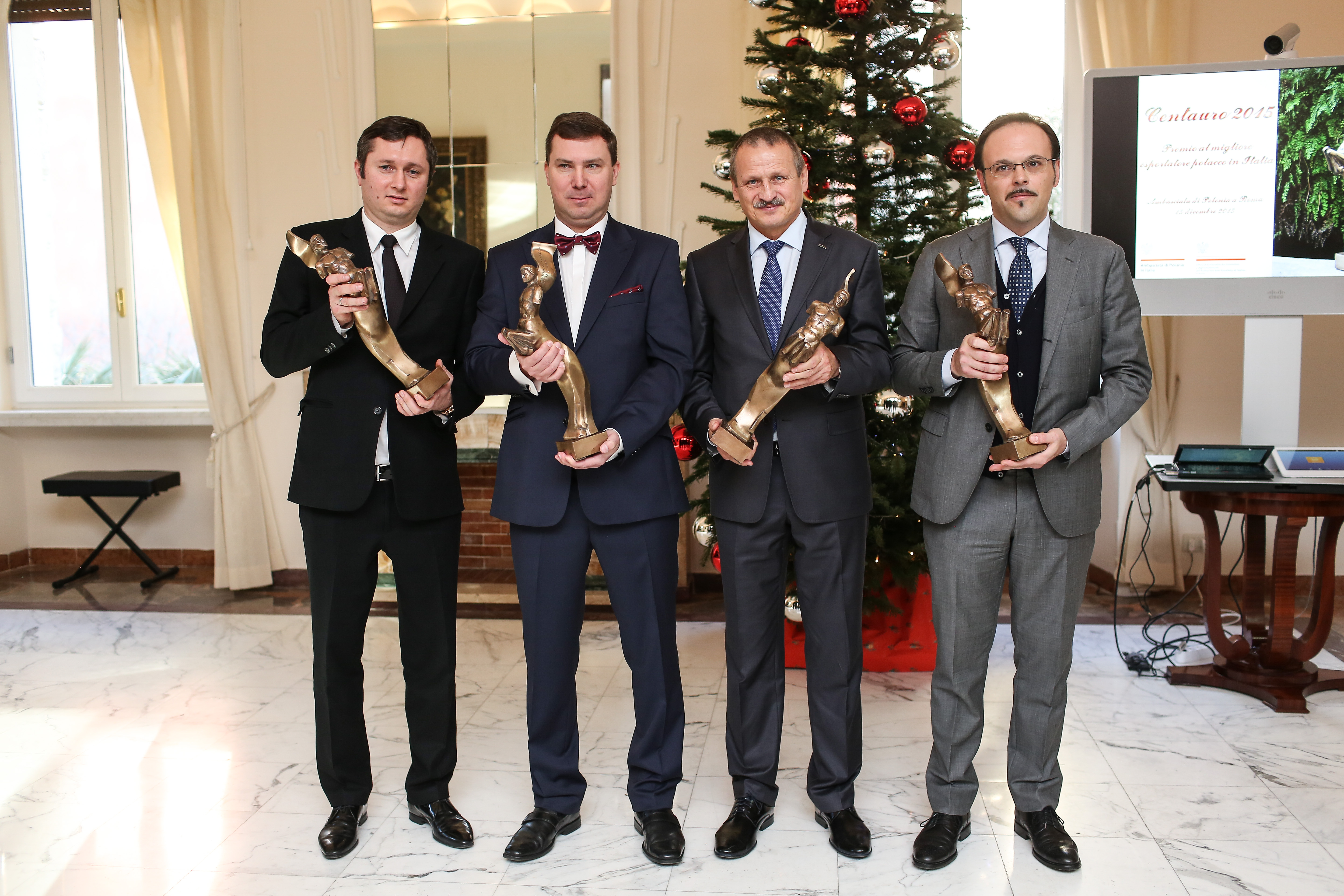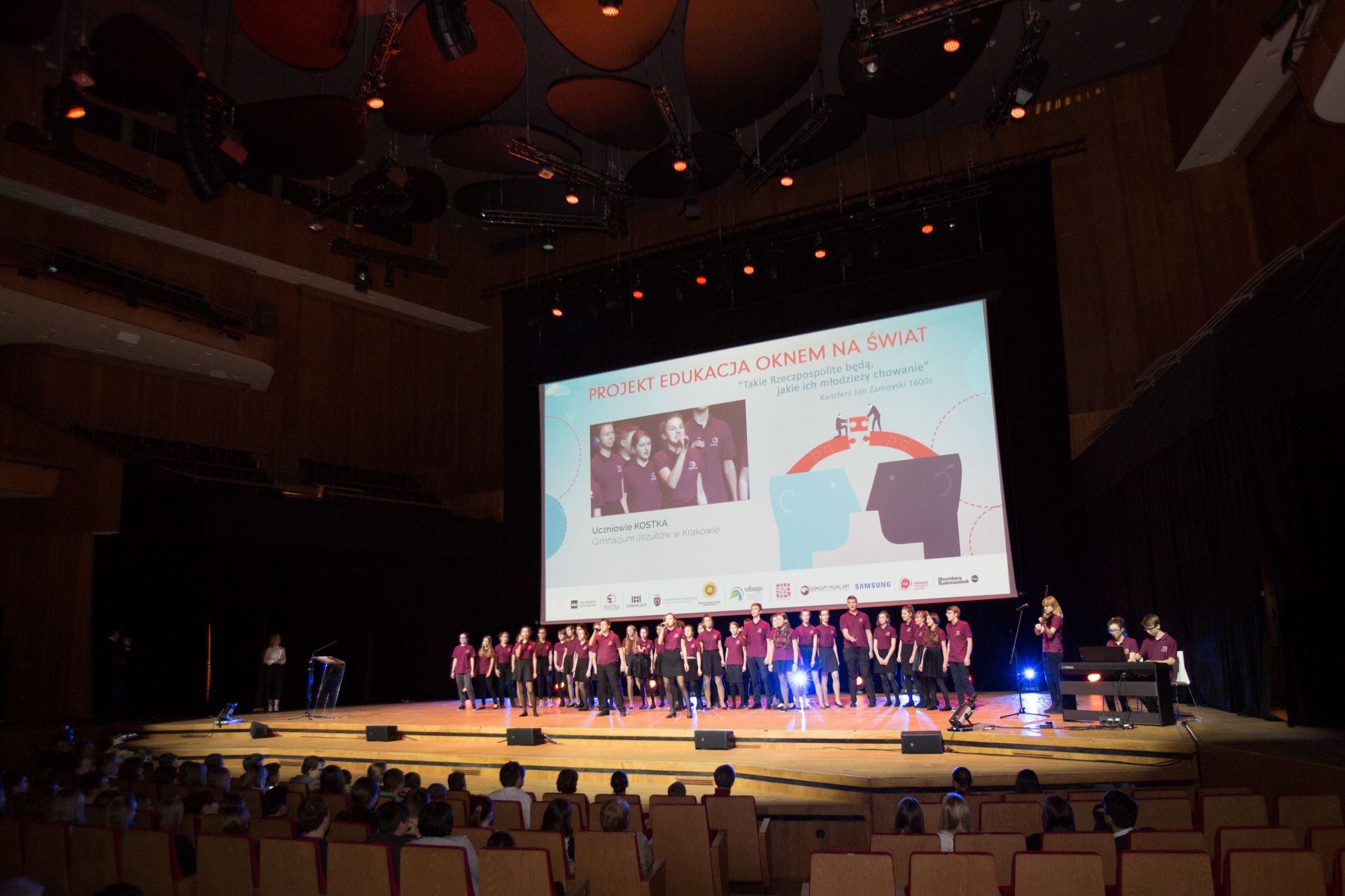Promoting Poland and all things Polish in other countries takes different forms. In a sense, we are all “ambassadors” of Poland, but it takes the people in business, art and diplomacy to truly reach foreign audiences with information on our culture and the dynamic growth of our country. It is mainly their job to present our country in the most favourable light and to broaden the knowledge of Poland among people in other lands. 16 December, in the Polish Embassy in Italy, saw the premiere of a unique project – the exclusive “La Dolce Vita” calendar. The calendar is a brilliant example of showing the most elegant sides of Poland..
The prestigious calendar was the initiative of the Ambassador of Poland in Italy, Mr. Tomasz Orłowski, and the acclaimed photographer Piotr Stokłosa. The project involved representatives of the Polish fashion industry, including top model Ola Rudnicka and designers Gosia Baczyńska, Bohoboco, Dawid Woliński, and the La Mania brand. This unique event was backed by brands well known to Italians: Oknoplast and Dr Irena Eris.
The idea behind the project is the need to combine the strength of Polish tradition with perspectives on the future. The authors of the project emphasise that it reflects the vision of politics and the needs of our society. It is the best way to preserve our identity, while looking forward and keeping an open mind. The project is a fusion of those two elements. On the one hand, it highlights the perseverance and endurance symbolised by the historic building of the Embassy, and on the other, modern Polish creativity born out of youth, an open mind, ambition and beauty.
The exclusive calendar is well known not only in Italy, but also in Paris, where its idea was actually born several years ago. The backdrop for the photos was provided by the stunning interiors of the 18th-Century building of the Embassy, one of the most beautiful structures in the French capital. After moving to the Eternal City, Mr. Tomasz Orłowski, as the Ambassador of Poland to Italy, decided to continue the project and to show to the Italian audience the same set of impressions of Poland, but this time in the scenery of Rome. The idea remained the same: to show the beauty of modern Polish creativity in an enchanting diplomatic residence.
“There was a reason we joined the project that is commonly referred to as the “Diplomatic Pirelli calendar”. The idea behind the calendar resonates with Oknoplast’s vision. We look forward, towards the future, and also the future of Poland. After all, Poland is a land of innovation, rich history and great talents, and the presentation of the “La Dolce Vita” calendar is a testament to that. The Italian fashion market is exceptionally demanding – Italy is the world capital of the most sophisticated design. I believe that the project of the Embassy calendar, which is also a project of Polish art, will be appreciated by the Italians. The Oknoplast brand has been present in the Italian market for 10 years, and the Apennine Peninsula is our chief exports market. It was a very conscious choice. We pay much attention to the visual quality of our products, and this is what Italian clients love us for,” said Mikołaj Placek, Chairman of the Board of Oknoplast Group.
Calendario 2016 dell’Ambasciata di Polonia a Roma from Michał Grzywacz on Vimeo.
Over the course of 10 years Oknoplast reached the position of the second largest window joinery supplier on the Apennine Peninsula and the best recognisable window manufacturer. Oknoplast owes its Italian success to high quality products and well-thought-out marketing activities. The windows from the Polish manufacturer are distinguished by unique design oriented at the client’s changing needs, and combining the economy and ergonomics of use.
An exclusive, limited edition of the calendar will be presented to prominent figures of political and cultural circles, members of the diplomatic corps, friends of Poland and our Embassy. This exceptional project came to life based on the recipe for a good year given by Katharina Elisabeth Goethe to her son, Johann Wolfgang:
Take 12 months, thoroughly scrub them of bitterness and envy, pedantry and fear. Divide each month into 30 or 31 parts, so that the supply suffices for one year. Each day will be made up of one part work and two parts cheerfulness and humour. Add three rounded tablespoons of optimism, along with a teaspoon of tolerance and a grain of irony, plus a pinch of tact. Then, pour an ample amount of love over the whole thing. The finished dish may be garnished with small sprigs of attentiveness, then cheerfully served every day along with a refreshing cup of tea.

